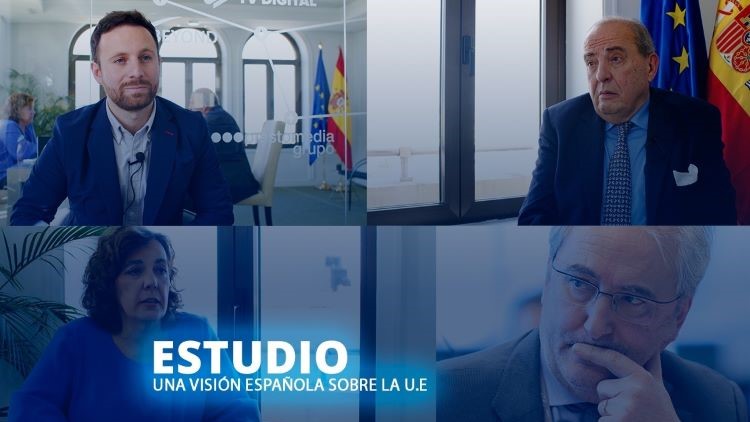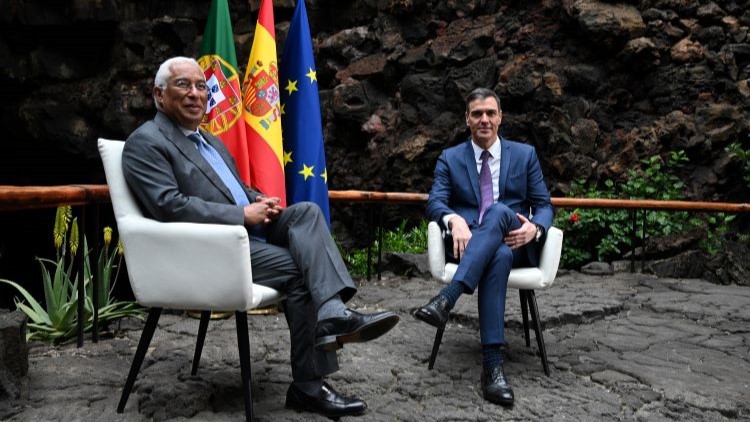Ane Barcos-Aquí Europa
The communication group Prestomedia has announced the study A Spanish Vision on the EU: 2024-2029, which seeks to contribute to the collective task of improving the European project from a Spanish vision. Prepared by a group of more than 50 experts led by former Spanish ambassador Javier Elorza, the study will focus on topics such as the enlargement of the Union, treaty reform and constitutional governance. In addition, it will have the collaboration of the Rey Juan Carlos University to address fundamental issues from an academic and social point of view.
Prestomedia, present for more than 30 years in Brussels, has decided to make its particular contribution to the relevant idea generation process to improve the European project from the strength of a Spanish vision. Yago González, CEO of Prestomedia, points out that this study has been launched at a “crucial moment for Europeans” because “we are on the verge of new European elections in which the priorities that will govern the union for the next five years.” Thus, he explained that the group is immersed in a process of debate about issues such as the reform of treaties, new extensions and a series of issues that “will directly affect the future of Spain”, such as the future of agriculture, the energy market and digital transformation. To do this, they wanted to count on “the best”, a group of more than 50 experts led by the former ambassador of Spain Javier Elorza. “This study was born with the intention of putting the voice of Spanish institutions, companies and civil society on the table, as other countries in the Union do,” says Yago González.
During the next European legislature, Spain will celebrate its 40th anniversary as a Member State. These four decades have contributed to the transformation and modernization of the country, but have also allowed Spain to participate in the European project with contributions such as territorial cohesion, the social pillar, the Erasmus+ project or the mutualization of debt through the Next Generation funds. For this reason, Prestomedia advocates facing the next legislature by contributing to the European debate a Spanish vision of the EU.
Javier Elorza, former ambassador of Spain and in charge of leading the group of experts, explains that the objective of the report is “to see how Spain can move its assets and face an issue that is on the table” which is how to face the enlargement of the European Union to the Balkans, Ukraine, Moldova and Georgia, and how to reform the treaties to enable this enlargement. “We must analyze what assets Spain has, what interests us and how we are going to approach this negotiation,” he points out.
For his part, Francisco Fonseca, former director of the Office of the European Commission and current director of the Institute of European Studies at the University of Valladolid, highlights that this study wants to discuss “in a prospective, ambitious and realistic way, what governance is constitutional framework that we have and analyze what reforms must be carried out.”
From the perspective of current affairs and the media, Jesús González, director of Aquí Europa and Canal Europa, points out that having a Spanish vision of the situation in the European Union is novel, because “we have always been behind and on the defensive in the proposals and priorities that Spain had with respect to the large countries of the Union, such as France and Germany.” For this reason, he considers that after 40 years of Spain’s journey in the European Union, “it is a good time to put on the table a vision made by specialists and made by personalities and authorities who have worked on the matter in Brussels.”
Prestomedia also wanted to count on the collaboration of the Rey Juan Carlos University to “gather a complete vision of Spanish society through the academic world.” The vice-rector of the university, María Luisa Humanes, explains the contribution of the URJC to this study, which will focus on addressing the fundamental issues that the European Union and, specifically, Spain, must face from June 2024. He assures that this work will be carried out “from an academic point of view, with rigor, but always showing a social vision of these issues that are necessarily going to be very important for our country.”







